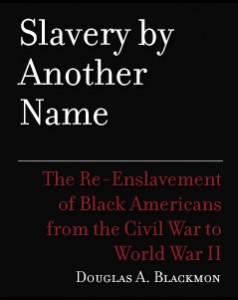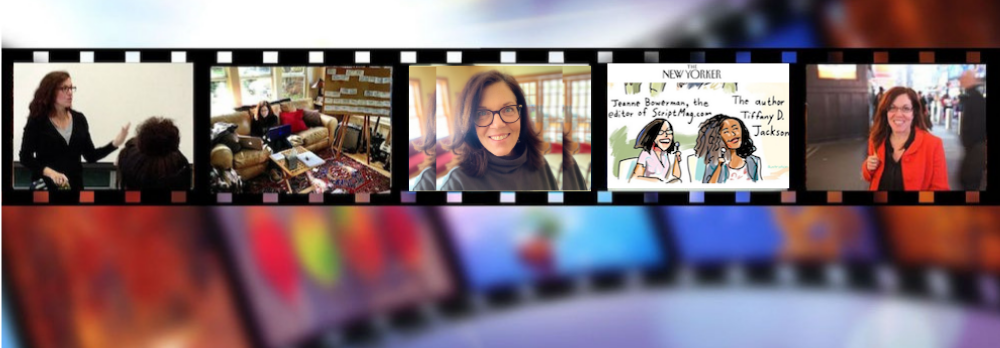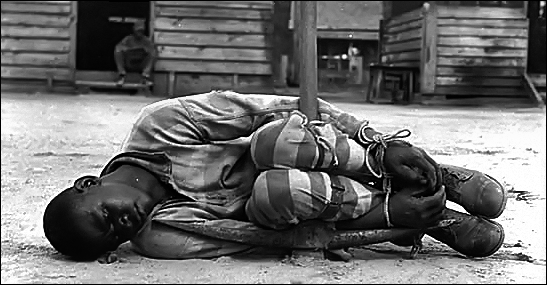 Feature Screenplay Honors:
Feature Screenplay Honors:
* Top 25 in 2014 Tracking Board’s Launch Pad Features Competition
* Final Draft Big Break Quarterfinalist
* Austin Film Festival Screenplay Competition 2nd Round
* Creative Screenwriting Expo Finalist
* DC Women in Film’s Spotlight on Screenwriters
* John August’s Scriptnotes at Austin Film Festival
Download SBAN Feature One Sheet
10-Hour Limited Series Honors:
* Second Round Sundance Episodic Lab
* PAGE Awards Finalist
* Slamdance Competition Quarterfinalist
* Script Pipeline TV Pilot Competition Quarterfinalist
Download SBAN Limited Series 3-Pages Synopsis
Download SBAN Limited Series Full 10-Hour Treatment
- Tracking Board Launch Pad Mini-Series: Our Interview with Launch Pad Finalist/Screenwriter Jeanne Bowerman, Part 1
- Tracking Board Launch Pad Mini-Series: Our Interview with Launch Pad Finalist/Screenwriter Jeanne Bowerman, Part 2
The Black List: “As horrible and terrible and cruel and hard to read as this [subject matter] is, it is such a compelling and enthralling story. There’s so much excitement and intrigue and a dire need to know the outcome. The script does a fantastic job of building up suspense, and really creating an environment of fear and frustration that can be felt strongly throughout… This is a great story that needs to be told.”
“These writers have tackled an honorable and worthy subject matter within the premise of this screenplay and one that has never truly been explored in film before. Typically, slavery films are centered around the civil rights movement or the Civil War, but this is a different take and examination on an era that fell between those two historic events. Peonage is virtually absent from the film landscape and in that regard, these writers are bringing something new and different to the table that should be celebrated. The singularity of this concept is sure to give the screenwriters a leg up in the morass of other racial significant films in development within the marketplace.”
Based on a true story.
A limited series based on the true stories told in the nonfiction Pulitzer Prize-winning book, Slavery by Another Name. Forty years after the Civil War, the economically downtrodden South falsely arrests thousands of black men on trumped up charges, forcing them into the newly created “perfect” business model – prison leasing. Reconstruction merely reinvented slavery by another name.
People often ask me why I, a white girl from New York State, am so passionate about the plight of the African American community in 1903. Simple. This is a dark piece of our country’s history that needs to be told. It’s impossible to read this story and not have a better understanding of the racial divide, even today.
The World of SLOPE 12 Limited Series – Slavery by Another Name
The decades after the Civil War saw a brief rise in African American standing. Blacks voted, held political office and purchased land. However, the success of the post-slavery generation came at a price for the overall Southern economy. Free labor was no more and cotton was dying on the vine. The threat of economic collapse, combined with deep-rooted racism, united the most powerful people in America to do something we would never be taught in school: Slavery was resurrected and a new “business model” was born.
How? Through a loophole in the 13th amendment: “Neither slavery nor involuntary servitude, except as a punishment for crime whereof the party shall have been duly convicted, shall exist within the United States, or any place subject to their jurisdiction.”
Southern states created trumped up laws to arrest African-Americans for talking too loudly in front of a white woman, not being able to prove they had a job, or merely walking the railroad tracks. Since “slavery” was legal if based on “punishment of a crime,” sheriffs leased the new convicts to plantations, coalmines and factories that used the free labor to not only increase their profits, but also to crush unions and break strikes. State by state, blacks’ right to vote was abolished. Human auctions resumed. Slavery was an addiction the south couldn’t shake.
There is no such thing as “freedom.”
The limited series begins mere weeks after President McKinley is assassinated and THEODORE ROOSEVELT takes office. President Roosevelt shocks the nation by inviting BOOKER T. WASHINGTON, the most influential black leader of the time, to be the first black man ever to dine at The White House. His goal? To earn the black vote come re-election. What seems like a simple dinner strikes a match of indignation in the South, pushing fragile race relations and paranoia to greater heights. While Roosevelt believes he’s healing the country, and blacks feel a great sense of hope from this historical event, politicians in the deep South state clearly the outrage of most whites, “Now 1000 niggers will have to be killed to put them back in their place”…
Read the full 3-page synopsis here.
Read the full treatment for the 10-hour series here.
The Journey of Slavery by Another Name
Every screenwriter has that familiar dream of crafting a script that will change their life, and hopefully, have an emotional impact on an audience. Often the vision comes from your own creative, twisted, insecure head, but sometimes it’s a book you see on a shelf that grabs you and screams, “Adapt me!” If it’s the latter, the first challenge becomes getting the author to agree when, heaven forbid, you have no money to offer, or worse… you’re an unproduced writer. Quiver. Now that elusive book is no longer screaming, it’s taunting you, giggling, “Good luck, chump.”
In 2008, my husband handed me an article from The Wall Street Journal, introducing Douglas A. Blackmon’s historical exposé about slavery post Civil War, Slavery by Another Name: The Re-Enslavement of Black Americans from the Civil War to World War II (SBAN). I clutched the paper and immediately ordered the book.
For the next six months, I basically stalked Doug, trying to muster the courage to make contact. Let’s get real, I’m a country girl from New York, and he’s a Wall Street Journal big shot. I had to be sure he wouldn’t laugh hysterically and hang up on me when I called. Much to my delight, in all the interviews I watched, he was humble beyond belief. I could do this. I could make contact, maybe even better than E.T.
Then it happened. SBAN hit the New York Times Best Sellers List. Expletives came spewing from my trucker mouth. I thought I missed my shot. I knew Oprah would have Doug on speed dial.
Without a thought, I snatched the phone and called the man. I left the most charming voicemail I could muster, which isn’t easy since I sound like I’m twelve. Yeah, that’ll impress him. I needed a Plan B. Email. I crafted a pitch, showing my humor as well as my passion and hit send. I had nothing to lose.
Guess what? The next day, Doug called me back. One of the first questions he asked was, “Forgive me, but should I know you… are you famous?” To which I calmly responded, “Not yet, but I will be.” Luckily I’m Sicilian, and I know how to bluff.
We spent the next 30 minutes doing the cat and mouse game. I couldn’t tell if I was winning or losing. But I wouldn’t let him hang up without hooking him. I went for the kill, announcing I would be in Atlanta for business the next week and would love to meet with him. Bingo. He bit… sort of. He wasn’t entirely sure he’d be in town or not, but agreed to try to arrange it.
I got my ticket, made hotel reservations and raced to the airport the next week in hopes of landing the biggest gig of my life, and hoping he’d actually be there when I landed.
My business trip? It was a bluff. I had no business in Atlanta at all. My only business was getting Doug to say yes. I was on a mission.
It was late July on a hot summer night when I walked up to the Georgian Terrace. I stared at the famous Fox Theatre across the street, with visions of Gone With the Wind dancing in my head, not knowing if Doug would ever show up. Hours passed. Then my phone rang. It was 10:30 p.m. on what was one of the longest days of my life. Douglas A. Blackmon was on his way to the hotel to meet me for a drink. Game on.
In order to convince him to say yes, I had to stand before him as a screenwriter – produced or not. I knew instinctively this was the pitch of my life.
Doug sat in the lobby of the hotel, laptop in hand, forever the journalist. I took a deep breath, and wearing my screenwriting uniform of flip-flops and jeans, shook the hand of the senior national correspondent of The Wall Street Journal. I will never forget that moment as long as I live. I immediately suggested the bar. Hell, I needed it. We sipped gin and tonics discussing the book and his seven-year journey writing it.
I wish I could say that upon meeting my brilliant self, Doug handed over the rights, but alas, I was an unproduced writer without money or an agent. He declared, “The only benefit for me is if we write this together.” It was everything in me not to jump from my seat and scream, “Cool!” But I didn’t. I smiled as if offers like this came my way every day. Sure, some writers would have scoffed at working with an author, but he wasn’t just any author, he was a playwright at heart. I could see it in his visual writing style. This was a gift I never dared dream I’d get. Douglas A. Blackmon – a writing partner.
But he wasn’t saying yes, he was testing me. This guy was playing harder to get than a virgin in a sorority house.
After three days and several meetings, my final day in Atlanta had arrived. I called Doug and asked for 30 more minutes of his time. His assistant showed me to the conference room where I sat, and sat and sat. Every insecure feeling I ever had surfaced. I felt like writer roadkill.
I looked out at the beautiful view of Atlanta and soaked in the moment. If nothing else, I had given this my all. I had to be proud of that fact. Without thought, I started my karate forms right there in the conference room. With each strike, punch and kick, my insecurities melted and my strength rose.
I was in a full-blown side kick, leg extended over the table, when the door swung open. There stood Douglas A. Blackmon. Busted.
I heard him laugh, “Well, this is a first for the Journal.”
And that was that. Laughter broke the tension.
It took six more months of determination, writing sample scenes, emailing, calling, sending outlines and going to different cities to watch him speak before he’d finally say yes. I literally broke the binding of the book preparing for this opportunity. It was the longest, most intense pitch of my life. But, it was worth every moment of risk I took.
Together, Doug and I are finding a wonderfully dramatic story in his historical research. The challenge is to nurture the real-life characters, enabling them to resonate on the page as well as in our audience’s soul, all while exposing the horrors of the post Civil War era. We are both fully committed to honoring those black men and women who suffered abominably.
Lesson to learn: Pitch and you shall receive. Yes, I was in the right place at the right time, I knew how to ask for what I wanted, I recognized a great story when I came across it, but I had the patience to wait until the author felt comfortable with my talents before he would commit. Sometimes a pitch is five minutes; sometimes it’s five months.
Despite my undying efforts to gain this project, I am forever mindful that Doug has graciously allowed me the opportunity to be on this train with him. He took a huge risk placing his “baby” in the hands of an unproduced writer. For that, I am deeply humbled. Let’s hope I can take “unproduced” off my title in the near future.
While we were deep into the adaptation, Slavery by Another Name won The 2009 Pulitzer Prize for General Nonfiction and required reading in many U.S. History classes in universities across the country, and the documentary version of the book was one of the top viewed docs on PBS.

Lee C. Bollinger, President of Columbia University (left), presents the 2009 General Nonfiction prize to Douglas A. Blackmon
Slavery by Another Name – PBS Documentary:
- The documentary aired on PBS February 13, 2012.
- Slavery by Another Name Documentary is accepted into the 2012 Sundance Film Festival Competition.
To learn more about the behind-the-scenes story of Slavery by Another Name’s adaptation, listen to our interviews:
- Film Courage L.A. Talk Radio with David Branin and Karen Worden. It’s available on iTunes or by visiting the Film Courage site. Beyond the radio interview, Karen continued our discussion on video on You Tube.
- Pilar Alessandra’s On The Page Podcast – Balls of Steel Episode #196 (June 10, 2011)
- Scriptcast with Script Doctor Eric and Matt (July 29, 2011) – Scriptcast 13
Special Thanks: I wanted to share a poem by the talented @SpeaksBeliefs, who inspired me every day to push past my fears and bring the truth to light. His poem is entitled “Thank You“. Watch him recite the powerful poem Thank You (in blue) HERE. I thank him for his support and heart.
Script Magazine: My weekly column for Script Magazine entitled BALLS OF STEEL, went live in March, 2011, chronicling the journey of Slavery by Another Name.
- Balls of Steel: Pursuit of the Project
- Balls of Steel: Be Careful What You Ask For
- Balls of Steel: Patience, Crazy Patience
- Balls of Steel: Put Up or Shut Up
- Balls of Steel: How to Grow a Set
- Balls of Steel: Pitching Takes a Team
- Balls of Steel: Plan B
- Balls of Steel: The Sting of Disappointment
- Balls of Steel: Being an Outsider
- Balls of Steel: Write What You Know… or Not
- Balls of Steel: Rewrite from the Gut
- Balls of Steel: Grab an Actor… and Listen
- Balls of Steel: The Road to Sundance


thank you for your kind words (and for sharing my words).
I’m honored and humbled to know you.
Pingback: lessons come with a sting | ramblings of a recovering insecureaholic
Pingback: Tweets that mention Slavery by Another Name – Pulitzer Adaptation | ramblings of a recovering insecureaholic -- Topsy.com
Thank you for sharing this book with me. I’ve always been drawn to works about slavery and race relations–particularly, previously unknown stories. It’s so important to expose these dark places in history and hearts. Thanks, again. I’m moved.
Amazing story of courage by you that is totally inspiring me to write more, guard my time more, be intentional with my three teen-age sons more, and by all means necessary be as brave as you in obtaining material to write. Your Atlanta journey was awe inspiring, thank you. I have signed up for your blog, no one really understand, except writers, what it takes to have the “balls” to write! I needed that. 🙂
Thanks!!!
Can’t wait for the movie to come out, it will!
I appreciate your support, Marvin. While it was almost 3 years ago that I reached out to Doug, I’m confident our journey has only just begun. I’m enjoying every stepping stone and am happy to take you along for the ride. Buckle up, Buttercup!
Greetings Jeanne! I recently encountered a center for creative consciousness in art, music, and film whose founder hosted a conference this spring re film as a catalyst of social change. Also, Tom Cruise.com urges screenwriters to raise social awareness through their writing. Just wondering…good luck! http://site.consciouscreativity.com/
Thanks, James. We appreciate the support.
Pingback: My A-List « Indiewood
In my talks on Benjamin Franklin and the Colonial Era, slavery always comes up (Ben was a slave owner when younger, an Abolitionist later). We also speak of the slavery still going on today in other countries. I am now, thanks to your work, adding in this aspect of slavery in the USA of the early 20th Century, of which I was unaware. Chagrinned, I stand corrected and improved.
Your journey, writing and accomplishments inspire to join.
G.Robin Smith
Honored to have your support. I strongly encourage you to read Doug’s book. It will forever change your view of US history.
Pingback: How to Handle the Rejection Inherent in Screenwriting | LA Screenwriter
Pingback: Interview Jeanne Bowerman | johnhoff3
Pingback: Live | ramblings of a recovering insecureaholic
Jeanne, such an inspiring story. I wish you and Doug all the luck in the world for this project. Good Luck at Sundance!
Pingback: From Book to Documentary to Narrative | ramblings of a recovering insecureaholic
Pingback: And They Say Twitter is a Time Suck | ramblings of a recovered insecureaholic
Pingback: 'Slavery by Another Name' Finds Producers - ramblings of a recovered insecureaholic
Pingback: Jeanne V Bowerman – INexpert #10 | The Beardy Writer
Pingback: screenwriting tips geo1 | screenwriting, geo1 | , geo1Write Your Screenplay Faster and Easier than ever before.
Pingback: Balls of Steel: Finding Character Motivation, Conflict and Compassion
Pingback: WRITERS ON WRITING: Lucinda Coxon on Theatre, Breaking In and 'The Danish Girl' - wrtsbx.writersdigest.com Managed WordPress Site
Pingback: WRITERS ON WRITING: Brian Godawa on Breaking In & Reinventing Your Writing Career - wrtsbx.writersdigest.com Managed WordPress Site
Pingback: BALLS OF STEEL: Which Screenwriting Experts Should You Believe? - wrtsbx.writersdigest.com Managed WordPress Site
Pingback: JEANNE'S SCREENWRITING TIPS: Sure-Fire Way to Nail a Pitch - wrtsbx.writersdigest.com Managed WordPress Site
Pingback: BALLS OF STEEL: Working with a Screenwriting Mentor - wrtsbx.writersdigest.com Managed WordPress Site
Pingback: Jeanne's Tuesday Screenwriting Tips: Selling a Screenplay - wrtsbx.writersdigest.com Managed WordPress Site
Pingback: BALLS OF STEEL: Screenwriting Pitchfests - Ripoff or Opportunity? - wrtsbx.writersdigest.com Managed WordPress Site
Pingback: Balls of Steel: How to Get Your Screenplay Read Without Asking
Pingback: Balls of Steel: Writing and Life - No Pain No Gain
Pingback: 'American Pickers' Road to TV with Show Creator Mike Wolfe, Part 1
Pingback: Balls of Steel: More Than One Path to a Writing Career
Pingback: Balls of Steel: From Contest to Career - wrtsbx.writersdigest.com Managed WordPress Site
Pingback: Balls of Steel: Stick a Fork In It - wrtsbx.writersdigest.com Managed WordPress Site
Pingback: BALLS OF STEEL: Collaboration - The Walk of Shame - wrtsbx.writersdigest.com Managed WordPress Site